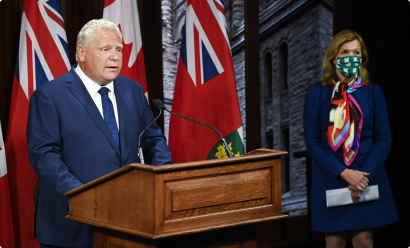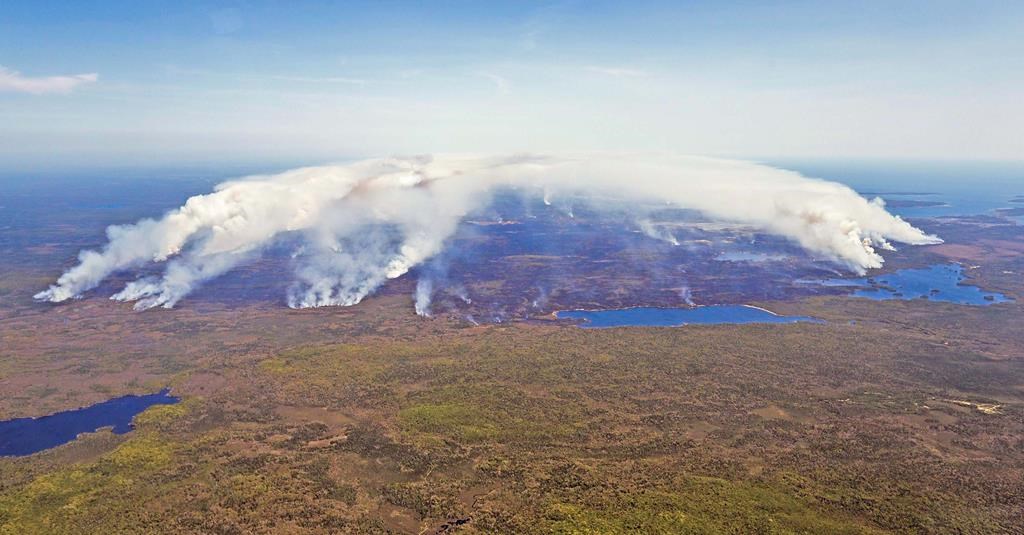HALIFAX — The fight against wildfires that have forced at least 21,000 people from their homes in Nova Scotia is expected to reach a pivotal point today.
Fire officials are worried about a resurgence in two major fires because of a phenomenon known as “crossover.”
Wildfires can become extreme events when the temperature rises above 30 C, humidity dips below 30 per cent and wind speeds top 30 kilometres per hour — and that’s exactly what is expected to happen today.
The two major fires that remain out of control — one in suburban Halifax, the other in the southwestern corner of the province — have already destroyed at least 200 homes and cottages.
Still, fire officials announced this morning that 50 per cent fire near Halifax had been contained and it had not grown since Wednesday.
Despite that good news, officials say firefighters are now dealing with parched conditions, rising temperatures and mounting wind speeds, which will make for an unstable environment for wildfires.
“We are far from being out of the woods,” David Steeves, a forest resources technician with Nova Scotia’s Department of Natural Resources, told a briefing at a command post in Upper Tantallon, N.S.
“We are still dealing with a very dangerous and volatile situation …. We are looking at possibly fast and aggressive spread rates.”
Much of the province experienced a very mild winter with very little snowfall, and there hasn’t been any significant rainfall in the past 12 days. As well, April was the driest month on record at the Halifax Stanfield International Airport.
Another contributing factor has been the rapid growth of Atlantic Canada’s largest city, which has experienced a building boom in recent years. The result has been the construction of large subdivisions on the outskirts of the city, where the backdrop is sprawling woodlands.
In Ottawa, federal officials announced today that more than 300 firefighters from the United States and South Africa are heading to Canada to battle an unprecedented wildfire season.
At least 100 U.S. firefighters were expected to arrive in Nova Scotia over the weekend. And another 200 firefighters from South Africa will likely end up in Alberta.
Meanwhile, Nova Scotia Premier Tim Houston has written to Prime Minister Justin Trudeau to ask for help.
In a letter released Wednesday, Houston said the province is looking for more water bombers and helicopters, and he submitted formal requests for firefighting foam, 5,000 hoses, four-wheel-drive trucks and assistance in establishing a base camp for 250 firefighters.
Houston also wants advance access to the federal Disaster Financial Assistance Program, which typically does not kick in until the province has spent more than $3 million on disaster relief.
Ottawa announced Thursday it had approved Nova Scotia’s plea for help, and the Canadian Armed Forces is preparing to provide extensive support, including help with logistics and resources. Natural Resources Minister Jonathan Wilkinson said that help will start arriving “hopefully” by the end of the day.
Environment Canada has issued warnings about poor air quality in Shelburne County, where a wildfire that started near Barrington Lake has become the largest forest fire in the province’s history, now covering more than 170 square kilometres.
In the town of Shelburne, all in-patients in the Roseway Hospital have be moved to other facilities and the hospital has been closed.
Another air quality statement was issued for Upper Tantallon and Hammonds Plains, just outside Halifax, as the out-of-control wildfire there was estimated at just over eight square kilometres in size.
Cooler temperatures and steady rain aren’t expected until late Friday.
“We have our fingers crossed,” said Steeves. “We need Mother Nature to get onside with us.”
Though the Atlantic region is better known for its soggy weather in the spring, Nova Scotia has recorded 201 wildfires this season, 28 of them in the past week alone. Those fires have so far burned 190 square kilometres of land.
This report by The Canadian Press was first published June 1, 2023.
Michael MacDonald, The Canadian Press






















